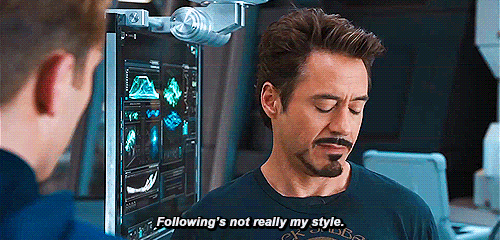It’s so easy to get caught up in the intricate details of the worlds we create. Descriptors are fun and add all sorts of flavor and imagery, but conversations between characters are integral to ensuring believable relationships even in the most fantastical settings. Because Speculative Fiction is my preference, I’ll be focusing on that genre, but make no mistake! Some of these rules are universal.
1. Sentence Structure Over Character Voice
Perhaps one of the most prolific narratives about human trials and adversity is the novel Push by Sapphire. Its narrator, Precious, lives in unfortunate circumstances to say the least. Her education and grammar are limited as a result, and the narration and dialogue cut no corners in delivering this information. A lot of the book is written in broken sentences, with words being cut off by apostrophes and the like. Because of this, the novel is a far more immersive experience. A character like Precious speaking the way I’m speaking to you now would not have been very believable. It might have made for a good story, but I don’t think readers would have connected with her reality as much.
All of this is to say, everyone doesn’t speak the same way. Even though a sentence might sound beautiful, in execution, it can’t subvert our knowledge of a character. The protagonist of my most recent work, Jack Melody, is a rough around the edges young adult. While some of his experiences could be seen as profound, he’s not the type to use a lot of strong literary metaphors. I feel as though writing those in his voice, even in narration, is doing a massive disservice to this character. Keep that in mind. Sometimes a simple “I’m sick of this shit,” is more true to life than “I’m overwhelmed by the purely exhausting nature of your actions!”
2) TOO MANY QUIPS!
I love the Marvel Cinematic Universe (MCU). Let me reiterate that. I LOVE THE MCU! It’s brought me my favorite show in Marvel’s Agents of SHIELD, and brought to life my favorite live action incarnation of my favorite hero, Spider-Man. But the introduction of Robert Downey Jr. as Iron Man, and all of the charming superheroes that followed, have left novelists and screenwriters alike in this trap of thinking quips are a supplement for real dialogue.

Think about the last conversation you had with a friend. Allow yourself the freedom to think egotistically here. Are you genuinely creative or clever enough to have a witty response to every single thing that’s said? And if not, why would every character in your fiction be that way? Let me be clear, it’s okay to have a charming comic relief character. You can even have a character who quips a lot, there’s nothing inherently wrong with that. But if you have everyone do it, it starts to feel like you’re using quips to replace characterization, which then turns into lazy dialogue.
3) Losing Character Positions
I’m very guilty of this one myself. Sometimes, it’s so easy to get caught up in the nonstop exchanges between characters that you lose sight of their position in the world. I don’t mean status, I mean their literal physical position. Did a character just run to get to where they are? Try to express exasperation in their words. Did they just wake up? Make their sentences shorter. Their brain is still getting into the swing of things!
Character personality and situation are two key factors, but they’re not the only two. Time of day, level of consciousness, level of awareness (are they distracted by anything?), and so much more are essential to make sure the character you’re writing is speaking in a way that’s true to them.
4) Not Reading Dialogue Out Loud
Forget how it makes you sound or look, you HAVE to read your dialogue out loud. Think about those trail-off moments when a character is confessing their love or sharing their tragic backstory. Those big romanticized moments can feel so incredible when we’re writing them. They’re over-the-top, they’re dramatic, they’re epic. But are they truly what your character would say? Are they truly what anyone would say? If you ask my friends, I’m immune to this rule, because I don’t talk like a normal human being anyway.

Still, even if you don’t see people regularly, you’ve probably watched a documentary, or reality TV, or even some sitcoms. You know how people talk to one another, and you’ll probably have a gut reaction to a piece of dialogue as you’re reading it out loud.
5) Exposition Dump
Information comes in many ways, and novel writing has the rare advantage of being able to give you descriptors for that. Because of this, we can keep dialogue succinct. Falling into the trap of the exposition dump is common. It’s a phenomenon where we deliver all meaningful information through conversation. This is one of those rare moments where you probably want to subvert reality a little bit. Sure, we do get a lot of information from conversation IRL, but it’s less fun that way when it’s written on the page. If a character is giving information to another character, it should be for one of two reasons. A) this is the only logical way for the character to receive the information or B) this is the most interesting way for the character to receive this info.
I can’t promise that avoiding these potholes will make your dialogue perfect, but I can guarantee that it will be easier to hear your character’s voices when you employ these techniques. Of course, that just opens up a whole new can of worms. Thank you all for reading and come back soon for more from the GAME ROOM!!!